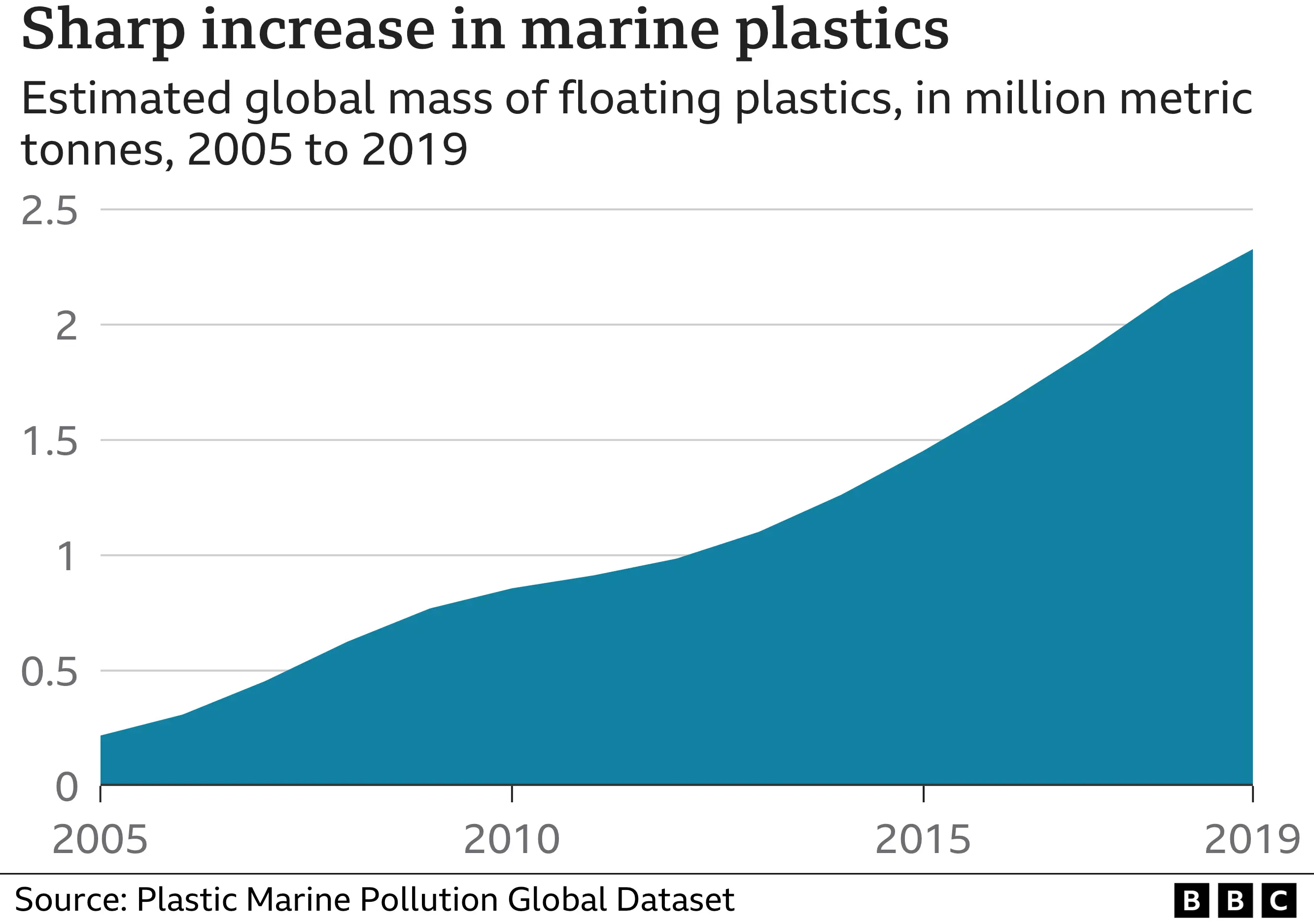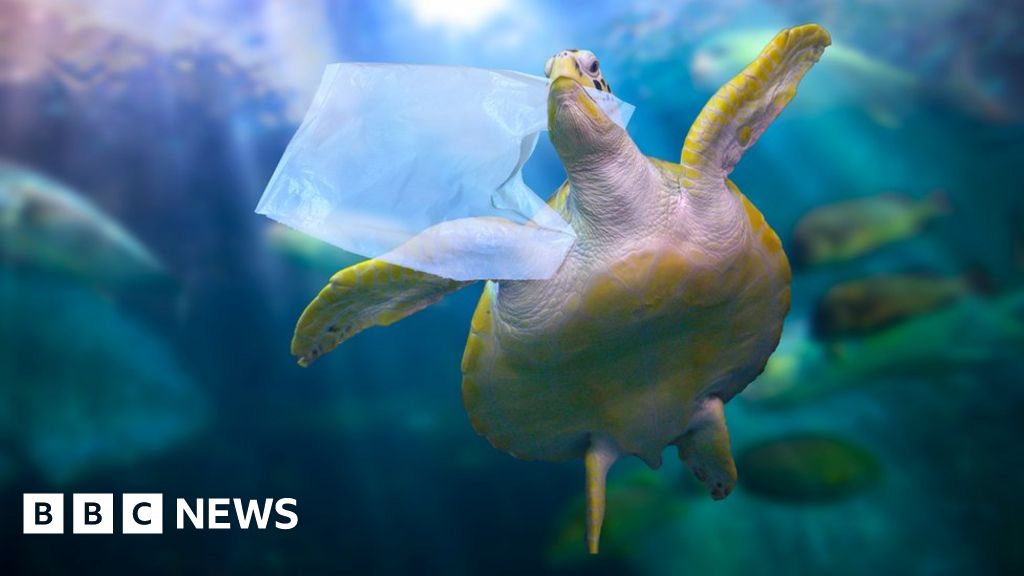Plastic pollution has emerged as a crucial environmental issue, significantly affecting marine ecosystems and wildlife. Various reports and studies underline the severity of this problem, revealing alarming statistics and the dire consequences for marine organisms.
The Extent of Plastic Pollution

According to recent estimates, more than 171 trillion pieces of plastic currently float in the world's oceans, up from about 16 trillion just over a decade ago. This staggering increase highlights the urgency of addressing plastic pollution, which now represents a significant threat to marine life and ecosystems. The prevalence of plastics not only includes newly discarded items but also older debris that has broken down into smaller particles[3].
Annually, approximately 11 million metric tons of plastics enter the oceans, equivalent to the weight of around 55,000 blue whales, indicating the overwhelming scale of the issue[4]. The IUCN reports that at least 14 million tons of plastic infiltrate marine environments every year, constituting about 80% of all marine debris found from surface waters to deep-sea sediments[1][2].
Direct Impacts on Marine Species

Plastic debris has devastating effects on marine organisms. Many species, such as seabirds, fish, and marine mammals like whales and turtles, often mistake plastic for food. This misidentification leads to severe outcomes, including starvation, as their stomachs fill with indigestible materials[2][3]. Research indicates that the ingestion of plastic can cause internal injuries, lacerations, and infections, seriously impairing the health and survival prospects of these animals.
Incorporating the findings from various studies, it becomes evident that marine wildlife encounters significant hazards due to plastic consumption. For instance, microplastics, defined as plastic particles smaller than 5 mm, are particularly concerning as they can be ingested inadvertently by marine species[2][5]. These microplastics accumulate in the food chain, posing threats not only to marine life but also potentially affecting human health through seafood consumption[2].
Additionally, plastics are known to transport invasive species across marine environments, further altering ecological balances and threatening native biodiversity[1].
Consequences for Ecosystem Health
The implications of plastic pollution extend beyond individual species to entire ecosystems. According to the IUCN, plastic waste affects all land, freshwater, and marine ecosystems, exacerbating biodiversity loss and ecosystem degradation[2]. The accumulation of plastics disrupts the natural processes that maintain ecosystem function, such as nutrient cycling, habitat formation, and species interactions.
Plastics also leach harmful chemicals into the marine environment, which can contaminate the food web and compromise the health of marine organisms. Some chemicals associated with plastic are known to be carcinogenic and can interfere with the endocrine systems of both wildlife and humans[2][3].
Economic Implications
The growing problem of plastic pollution also has significant economic consequences. The littering of plastic can devalue tourism, particularly in coastal areas where cleanliness is paramount[2][4]. Additionally, plastics in the ocean can harm industries reliant on healthy marine environments, such as fisheries and aquaculture, threatening food security and livelihoods[2].
Efforts to manage plastic pollution are costly and resource-intensive, with substantial economic burdens on communities and governments that must deal with the cleanup efforts. The International Coastal Cleanup initiative highlights the involvement of millions of volunteers who have contributed to the removal of significant quantities of plastic debris from the world’s oceans, underscoring the collective efforts required to combat this pervasive issue[4].
Solutions and Future Directions
Addressing the crisis of plastic pollution necessitates urgent and comprehensive action. Proposed solutions include the creation of a global plastics treaty aimed at reducing plastic production, setting strict regulations on single-use plastics, and enhancing waste management infrastructures in vulnerable areas[2][5]. The emphasis on circular economy practices, such as reuse and recycling, is critical to diminish the flow of plastics into marine environments.
Scientifically, researchers emphasize the need for a 32% reduction in plastic littering by 2035 to halt further marine damage, highlighting the importance of innovative waste management strategies[5]. Increased public awareness and behavioral changes toward consumption patterns are also crucial for mitigating the impacts of plastic pollution.
In conclusion, the extensive impact of plastic pollution on marine life is multi-faceted, affecting health, ecosystems, economies, and biodiversity. Without concerted global efforts to address the underlying issues contributing to plastic waste, both marine life and human communities will continue to suffer dire consequences.
Get more accurate answers with Super Pandi, upload files, personalized discovery feed, save searches and contribute to the PandiPedia.
Let's look at alternatives:
- Modify the query.
- Start a new thread.
- Remove sources (if manually added).